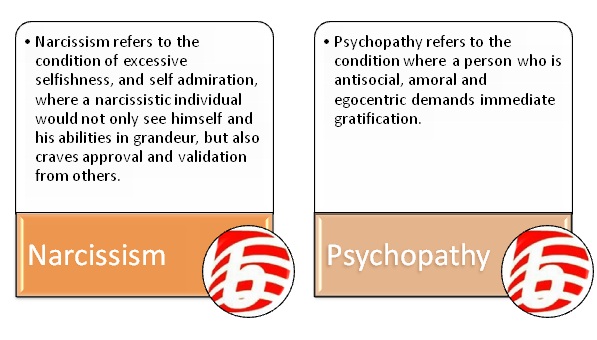Narcissism vs Psychopathy
Distinguishing between narcissism and psychopathy can be beneficial, as our societies have become more complex and we encounter individuals who exhibit narcissistic and psychopathic behavior. This article aims to provide an understanding of these two terms, highlighting their differences and similarities. Narcissism and psychopathy are personality traits or individual conditions studied in psychology and mental health. Narcissism refers to excessive selfishness and self-admiration, where a narcissistic person sees themselves and their abilities as grand and craves approval and validation from others. In contrast, psychopathy refers to a condition in which a person is antisocial, amoral, and egocentric, seeking immediate gratification without craving validation or approval. The key difference between narcissism and psychopathy lies in this interest in validation and approval.
Key Takeaways
- Narcissism is characterized by excessive selfishness, self-admiration, and a craving for approval and validation from others.
- Psychopathy is characterized by antisocial, amoral, and egocentric behavior, seeking immediate gratification without craving validation or approval.
- The key difference between narcissism and psychopathy lies in their interest in validation and approval; narcissists seek it while psychopaths do not.
What is Narcissism?
The term narcissism originates from Greek mythology, where young Narcissus fell in love with his own image. This is often associated with ideas such as excessive self-love, vanity, and conceit. According to Sigmund Freud, all people are born with some sense of narcissism, but as a child grows, they realize the world does not center around them alone, and everyone has their own goals and ambitions. However, a narcissistic person fails to grasp this reality, demanding immediate gratification and having a grand opinion of themselves. They also seek approval from others to gain satisfaction. In psychology, excessive narcissism is considered a disorder called narcissistic personality disorder. Narcissism can be applied to an individual or a group, with the latter displaying superiority and indifference to others’ feelings. Narcissists are incapable of empathizing, using others as objects that can be duped and manipulated for their benefit. Historical figures such as Adolf Hitler and Joseph Stalin are often considered narcissistic personalities.
What is Psychopathy?
Psychopathy also displays grandeur, egocentrism, and antisocial behavior with a hint of sadism. Psychopaths are often fearless to the point of being indifferent to law and order and are emotionally numb and hollow. The key difference between narcissism and psychopathy is that while narcissism demands approval, psychopaths are indifferent to validation and approval, making it a more severe and dangerous situation. They have their own agendas and fail to empathize with others, manipulating and duping them for their interests. There are mainly four types of psychopaths: primary psychopaths, secondary psychopaths, distempered psychopaths, and charismatic psychopaths. Primary psychopaths have no agenda in life and engage in antisocial behavior most of the time, incapable of forming emotional bonds with others. Secondary psychopaths are similar, living to fulfill their temptations. Distempered psychopaths are easily angered and have strong sexual drives and cravings, such as drug addiction. Charismatic psychopaths are charming individuals with a demonic appeal, often gifted with some ability they use to deceive others.
What is the difference between Narcissism and Psychopathy?
When examining the similarities and differences between narcissism and psychopathy, a striking similarity is their ability to objectify others.
- Both narcissists and psychopaths have little or no empathy, making it easy for them to view others as objects.
- The main motive of both narcissists and psychopaths is to gratify themselves by any means necessary.
- While psychopaths are indifferent to others’ opinions, narcissists cannot risk this condition; their satisfaction can only be attained through the validation of others.
- Both see themselves as superior to fellow human beings and are blind to their own flaws.
- Although both narcissists and psychopaths have the potential to be callous and destructive to others, narcissists feel the need to rationalize their actions when their morality is in question, unlike psychopaths, who are completely amoral.
